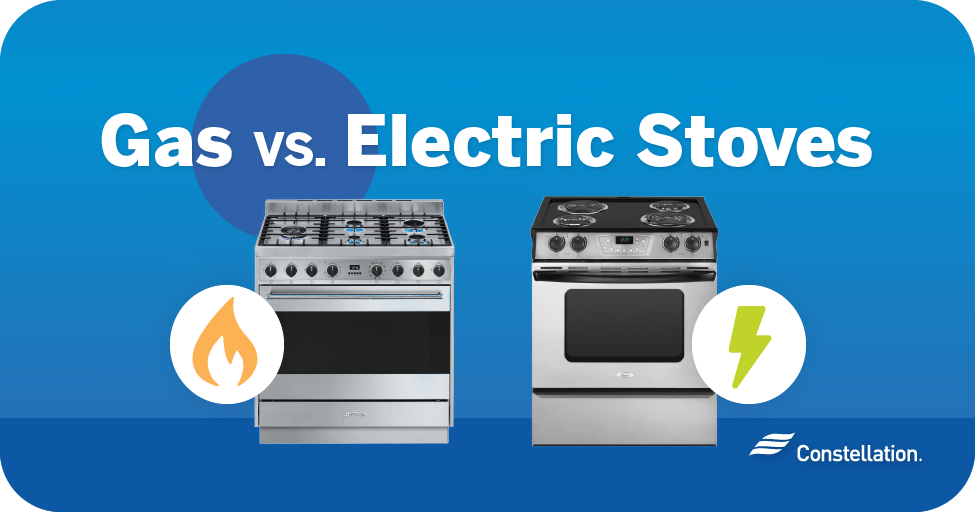Choosing between a gas vs. electric stove is a decision many homeowners need to make when updating, renovating or building a kitchen. You’ll need to consider the pros and cons of both and understand the difference between gas and electric stoves to make your decision. Beyond those factors, it will come down to personal preference.
Are Electric Stoves Better than Gas?
People often want to know which is better, gas or electric stoves. The answer isn’t straightforward. First consider the cost. You might wonder, is an electric stove cheaper than gas?
In general, if you already have a 220-240 volt outlet, an electric range is inexpensive to install. You can find models that are relatively inexpensive. That said, electricity is typically more expensive than gas, so your cost of use will be higher with an electric stove. Here are some other considerations:
- Easier to clean
- Better temperature for low heat
- Accommodates different sizes and styles of pots and pans
- Cooktop may not be as durable
- Considering the oven, you have precise temperature control
- Peace of mind for people who fear using gas
- Going all-electric can make your home more sustainable
Are Gas Stoves Better than Electric?
Gas stoves heat using a flame generated by burning natural gas or propane. Are gas stoves better than electric ones? In weighing the benefits of gas vs. electric, personal preference matters. Some people simply prefer to cook over a flame. Here are some of the points to consider regarding gas ranges:
- Fine-tuned temperature control
- Better appearance
- Immediate response so you can heat faster and cool down quicker
- More durable and long lasting
- Gas is usually cheaper than electricity for lower cost of use
- Not as easy to clean
- Purchase price is a bit higher
What is the Difference Between Gas and Electric Stoves?
In comparing a gas vs. electric stove, it is helpful to look at the differences side-by-side. Considering your own preferences you can determine how the benefits of gas vs. electric should be considered in your kitchen.
Gas vs. Electric Stoves: Energy Efficiency and Energy Costs
One way to consider which is better, gas vs. electric stoves, is to look at energy efficiency. While electric stoves use a higher cost energy source, cooking with electricity is more efficient.
With electric ranges, 70% of the energy is transferred to the food you are cooking. With gas, only 40% of the energy is used to heat the food. The most recent energy efficiency study points to induction ranges, which use electricity, are the most efficient of all. Some 90% of the heat goes to cooking your food.
Still, depending on how you cook and where you live, gas can have a much lower energy cost, despite differences in energy efficiency.
Gas vs. Electric Stoves: Health and Safety
Safety concerns for gas vs. electric stoves are worth considering before making your purchase. Gas stoves are historically very safe, with over 100 years of trouble-free usage. That said, if your gas stove is incorrectly installed, a dangerous gas leak could occur. Though less dramatic, an incorrectly installed electric range is also dangerous. If the wiring won’t support the electricity draw, this creates a fire risk.
Learn Ways to Lower Your Electricity Bills
Whichever choice you make, you can change habits to use less energy cooking on the stove. It also makes sense to choose among energy-efficient ovens and stoves. We have gathered a nice collection of energy-saving tips that can make a difference around your home.
Just as important is trimming costs from your budget. Learn what energy choice is and how you may be able to get better pricing if you live in a competitive power market.
